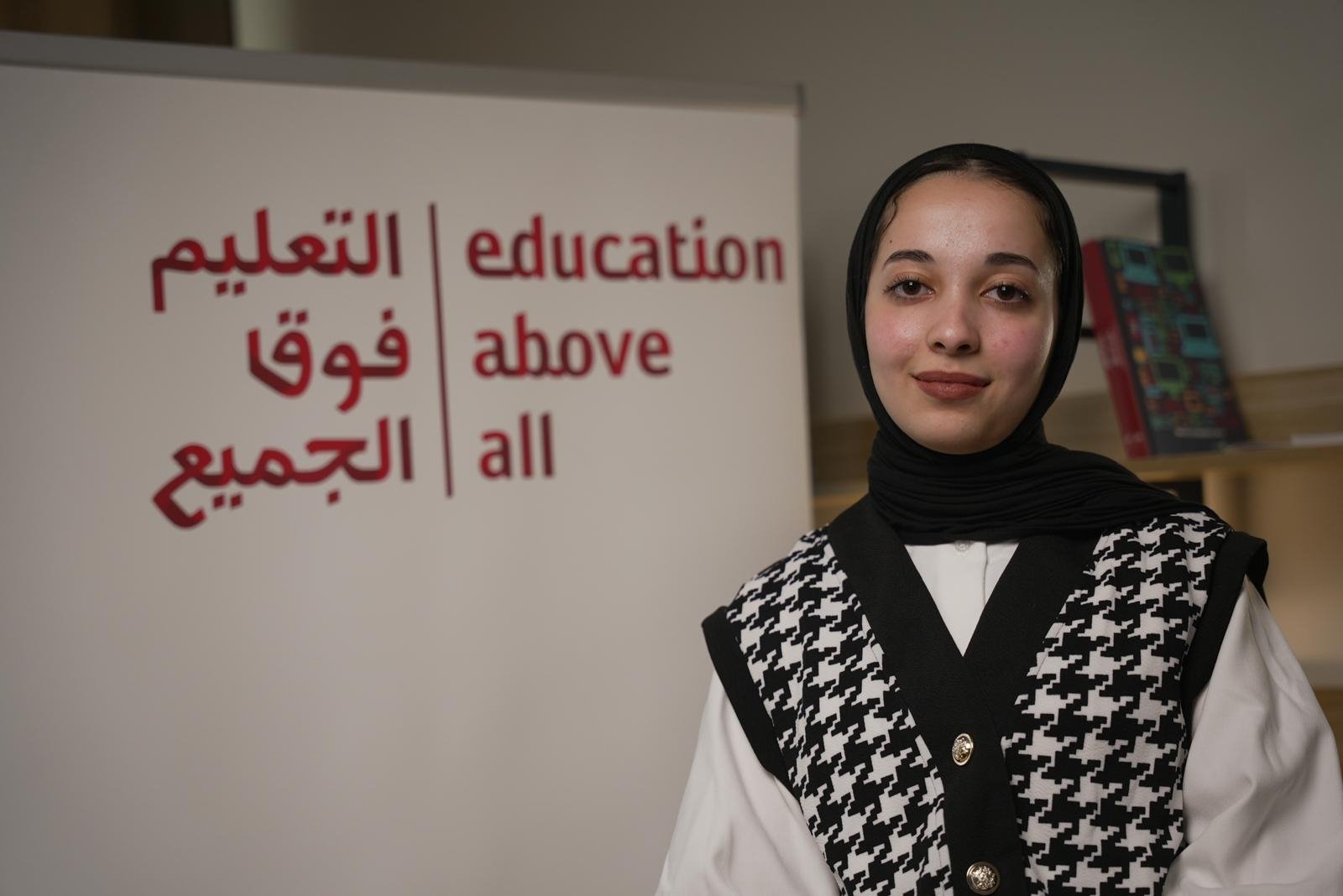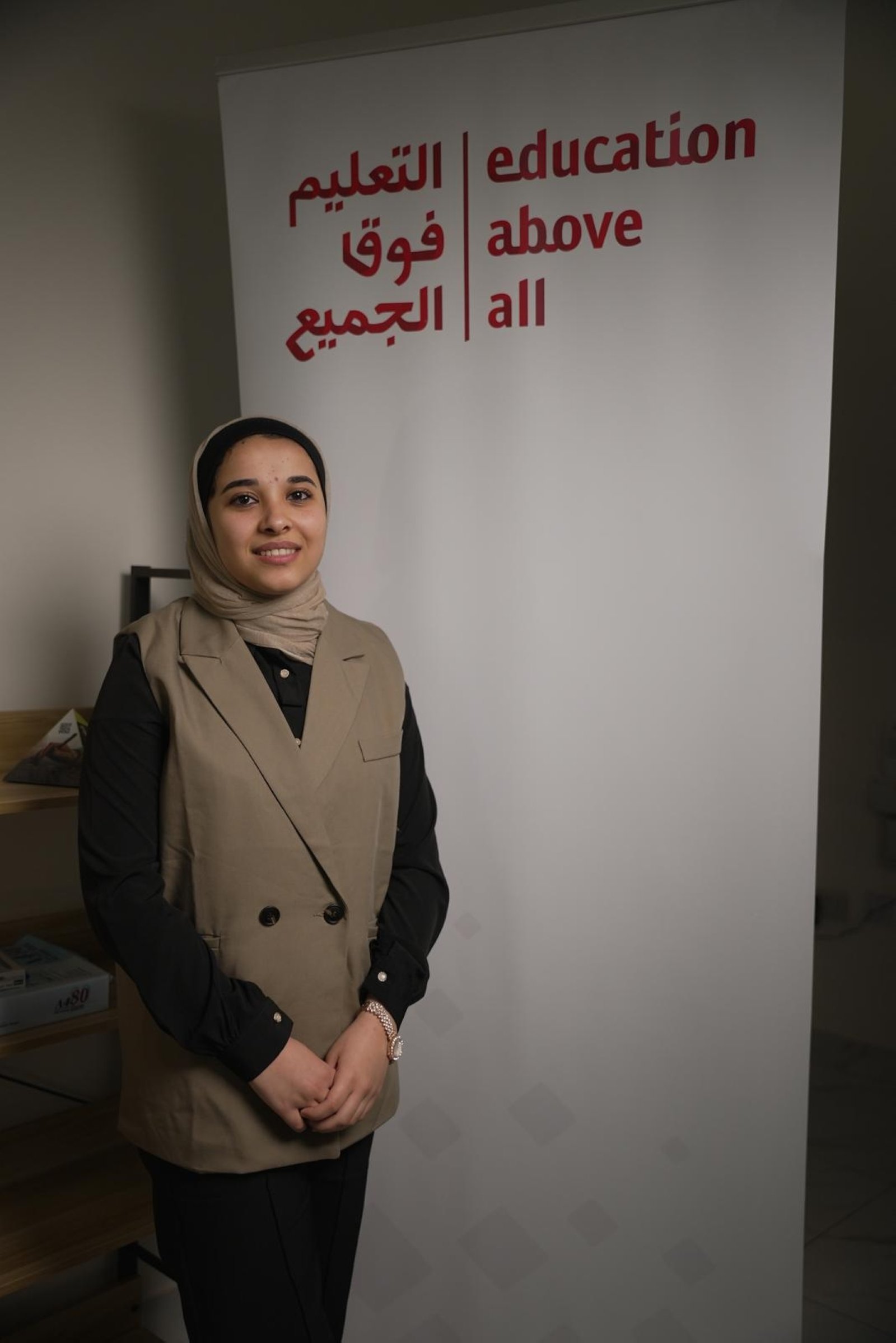© Turkuvaz Haberleşme ve Yayıncılık 2026
As millions of students and parents around the world prepare for the back-to-school season, the situation is much darker for Palestinian students, who continue to suffer from Israel’s genocidal war on Gaza.
“I was satisfied with the life I had before Oct. 7,” says Haya Sabra, one of three Palestinian sisters evacuated from Gaza to Doha, Qatar, as she recalls her life before the conflict began.
"I'm an optimistic person with a lot of friends. I used to wake up early, prepare for university, practice my favorite sport – jumping rope – and do everything I could to make myself and the people around me happy,” Haya adds. “But when the war started, it was a nightmare – tough days, struggling to survive without basic necessities and scared of loss.”

Israel's war on Gaza has shown it all – the devastation of civilian life, with bombs dropped on hospitals, refugee camps, civilian convoys and deliberate targeting of schools. As Israel’s brutal attacks continue to claim more lives, education for generations to come has become one of the worst affected sectors, with much of the infrastructure destroyed.
According to the United Nations Office for the Coordination of Humanitarian Affairs (OCHA), more than 625,000 students in Gaza currently have no access to formal education.
As of Aug. 27, Israeli attacks had killed 9,839 students and 411 educational staff members. Additionally, 85% of school buildings (477 out of 564) had been hit or damaged and were in need of reconstruction, as of July 6.
Haya, Shaza and Rahaf Sabra were fortunate to be evacuated from Gaza and begin a new journey in Doha as part of the Al Fakhoora program, run by the Education Above All (EAA) Foundation.
“I was the youngest in my family, the one everyone loved. I cared a lot about my studies and enjoyed spending time with my family and friends, playing with my cat,” Shaza told Daily Sabah during an interview with the three sisters, reflecting on her life before the war.
The sisters, now in Doha, were reunited with their mother, who had left Gaza to visit family in Qatar in September, just before the conflict erupted.
Adapting to a new life in Doha has been “a challenge,” but one that has helped them “learn a lot about adapting and being flexible with different cultures,” as Rahaf described it.

The EAA Foundation was established in 2012 by Sheikha Moza bint Nasser, the mother of the emir of Qatar. Its mission is to transform lives through education, focusing on children and youth in conflict areas.
The foundation’s initiatives include Educate A Child (EAC), Al Fakhoora, Reach Out To Asia (ROTA), Protect Education in Insecurity and Conflict (PEIC), Innovation Development (ID) and Together projects.
In recognition of Sheikha Moza's efforts, the United Nations General Assembly declared Sept. 9 as the International Day to Protect Education from Attack.
The fifth observance of the day was marked in Doha with an event themed “Education in Peril: The Human Cost of War,” attended by global leaders, SDG advocates, U.N. dignitaries and members of civil society.
The sisters described the hardships they faced in Gaza once the war started, including the lack of electricity, internet and constant bombings, which made it impossible to continue their education.

Now, they are starting a “new journey and a new phase in their lives,” as Shaza put it.
“I have a lot of plans for the future,” said Rahaf, discussing her career goals. “First, I want to learn about new and modern technologies. Second, I plan to work on personal projects, like giving programming language courses.”
Rahaf said her experience with the war has made her “braver” and given her the courage to face challenges and appreciate peace and security.
“It made us more emotional and sensitive, and it made us believe that justice will come, even if it takes a long time,” she added.
Israel’s ongoing war on the Gaza Strip has killed nearly 40,900 Palestinians, mostly women and children, and injured over 94,200 others, according to local health authorities.
An ongoing blockade of the enclave has led to severe shortages of food, clean water and medicine, leaving much of the region in ruins. Israel faces accusations of genocide for its actions in Gaza at the International Court of Justice.
